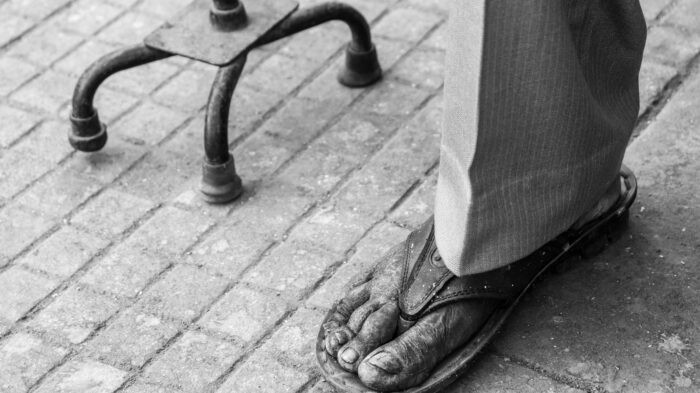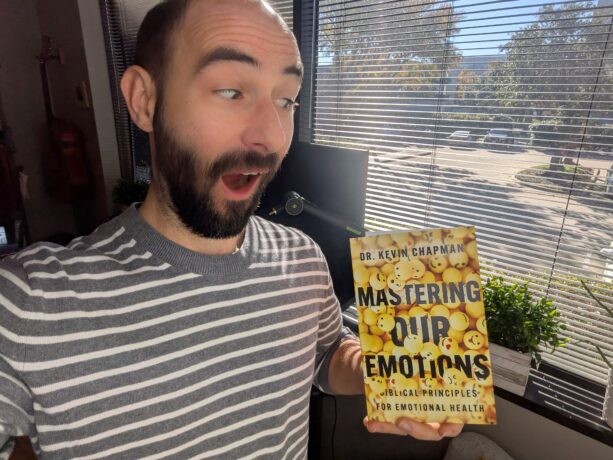
The concept of acceptance is a tricky one for OCD and Anxiety Disorders. When introducing clients to it, the first response I hear every time is something like, “Am I supposed to accept these terrible thoughts?” or “Do I just pretend like they’re not happening?”
It’s Not The Same as Condoning
In other words, most people confuse acceptance work in therapy with “condoning” things they don’t like or aren’t okay with. This hesitation appears to be particularly fierce in those who have religious scrupulosity or “inappropriate thoughts” (sexual, violent, etc.).
The Essential Nature of Acceptance: Living in Reality
Dr. Fred Penzel wrote the excellent article, Acceptance and OCD. He states,
“Accepting something doesn’t mean liking it or grudgingly giving in to it. There are many things whose existence we accept that we do not like. OCD is a good example. There are many out there who suffer with the disorder who simply cannot acknowledge or accept that they have it, or that it is really having a very negative impact on their lives. Typically, when it comes to their disorder, these people do not change very much. If they finally do go for therapy, they cannot seem to bring themselves to follow through with treatment. The psychoanalyst Carl Jung once said, ‘We cannot change anything unless we accept it.'”
He also brings up the serenity prayer of the 12 steps. My friend, Robert James, host of The OCD and Anxiety Podcast, puts it this way:
“When people talk about accepting anxiety and accepting your thoughts, it´s important to remember what they are not saying. They are not saying that by accepting them that you agree with them or that you don´t think the thoughts are horrible or repulsive, all they are saying is that you do not have any control over what thoughts come into you consciousness (because we don´t) and your thoughts therefore do not reflect anything bad about you as a person. In fact whatever you forcibly try not to think about will, quite paradoxically, be what you end up thinking about. Ira Hyman Ph.D. discusses in the article ´Don´t Think About It´ that ‘Don’t think about it is bad advice. Although people can have limited success suppressing thoughts for a while, the thought will rebound.’
One Tool: Acceptance Scripts
Acceptance of the existence of something is crucial to best live in reality. If anything is to be changed, it must be accepted (as Carl Jung noted). Therapy provides many tools of the trade to aid in practicing helpful acceptance. Two modalities that offer a lot of these tools are Cognitive Behavioral Therapy (CBT) to Acceptance and Commitment Therapy (ACT). I’ll leave you with an excerpt of what a father, husband, and pastor shared with his community. “grizzfan89” wrote on Health Unlocked, “My acceptance & motivation script”:
I am going to stop chasing “perfection” and “certainty” by “fixing”, checking, touching, tapping, resealing, arranging, and counting objects until they feel “just right”. I recognize that everyone experiences unwanted intrusive thoughts, including violent and existential thoughts. I also recognize that everyone experiences anxiety, including the feelings & bodily behaviors that accompany panic. Dismissing intrusive thoughts and feelings is difficult for me because I have OCD and I am a good person. By forgoing my anxiety ridden-obsessive vigilance, I am giving up the quest for certainty and perfection. I understand that when I stop engaging in compulsions, I am risking the possibility of losing my mind, harming someone or myself, experiencing a panic attack, and ending up in an asylum. I have to take these risks to get better, even though I don’t know for sure what will happen.
I am choosing to do ERP because if I continue to obey OCD, it is likely that I will become incapacitated by ritualization. I will constantly be preoccupied with my compulsions, mentally and physically. I will become extremely anxious, bedridden and agoraphobic. I will become depressed and will experience panic attacks because of it. I will lose confidence in my ability to do anything. I will be constantly distracted, distant and removed from the present. I won’t be able to finish school and earn my degree. I won’t be able to enjoy my family and spend time with them. My marriage will be ruined, and Marissa won’t have a husband to care for her. I will spiral deeper into destructive habits such as pornography, video games and other distracting behaviors. My children will grow up with an absent-bedridden father. My family will be left impoverished and alone. I will have to be waited on like an invalid. I may be institutionalized. Ultimately my obsessive fears and intrusive thoughts will continue to rule over me, especially if I choose OCD. OCD never removes the possibility of my obsession.
Where Are You Today?
Is there anything you’re not accepting today that is part of the reality of the moment? What is one step you can take to live better in that reality?








Leave a Reply